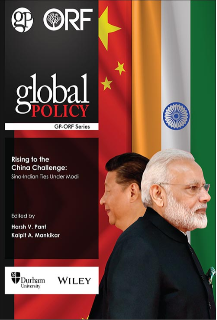Of all the conflicts raging within Pakistan today, the Balochistan crisis is least debated in the international media. The Baloch people, who claim an identity independent of other Pakistanis, have been fighting for their rights for the past several decades. The state of Pakistan, dominated by Punjabis, has responded with brutal methods of suppression. Since 1948, Balochistan has faced several big and small military offensives. President Pervez Musharraf used combat helicopters to attack the Baloch nationalists and killed veteran Baloch leader Nawab Akbar Khan Bugti in one such attack in August 2006.
Since then, the Pakistan security forces have systematically hunted down anyone with remote connection to Baloch nationalist leaders, even those who have taken asylum abroad. Countless instances of gross human rights violations have been documented by independent watchdogs, including the Human Rights Commission of Pakistan. There is, however, little global attention. One reason could be the way Baloch nationalists have constructed their ethno-nationalistic claims.
The Baloch nationalists’ claim that they are a ‘subjugated nationality’ and their demand for ‘allowing the Baloch to exercise their right of self-determination’ is problematic for different reasons. First, this claim confuses the very distinct concepts of ‘ethnicity’ with ‘nationality.’ While the Baloch nationalists define ‘nation’ narrowly in terms of ethnicity as opposed to shared culture or language, a ‘nation’ may be defined as a collective of people sharing a national identity based on ethnicity, culture, history, or language. Ethnic groups within greater societies should be entitled to self-determination. However, the outcome of this right need not mean the establishment of an autonomous entity or a sovereign state. Greater self-determination can be achieved through self-regulated administrative bodies within an established state or society.
Second, the claim that Baloch self-determination will improve global peace and security also raises concerns. Supporting Baloch secession could have a domino effect in the region prompting other ethnic groups such as the Sindhis, Pashtuns, and Kurds to assert their own claims of ethnic nationalism. An extreme scenario would be a complete disintegration of Pakistan, and perhaps parts of Afghanistan and Iran, into multiple, small, ethnically organized states. Far from improving the security of the region, the emergence of many new states lacking a constitution, stable government, security and economic infrastructure will severely destabilise the region. Considering that Iraq and Afghanistan are already failing states, more unstable nations in the region will create an unnecessary burden on regional security and development.
Further, the creation of Balochistan will require taking considerable chunks of land from the states of Pakistan, Iran (and perhaps parts of southern Afghanistan). First, it is doubtful that either country would peacefully allow carving away territory for the establishment of a Baloch state; the cause is fundamentally antagonistic to the integrity, sovereignty and strategic interests of both Pakistan and Iran. Second, if a Baloch state is established through a coerced taking of territory, neither nation will recognize Balochistan as a sovereign state and will thus have scant regard for its territorial integrity. Given the rampant problem of Islamic fundamentalism and terrorism in the region, far from decreasing terror originating here, the creation of Balochistan will probably become yet another excuse to ‘wage jihad against infidels’. Finally, one must consider the viability of an independent Baloch state. The Baloch nationalist movement has not presented a united front over the decades, and there has been considerable in-fighting between the various factions and tribal leaders. It is doubtful that a Baloch state will have effective governance if the various tribal chiefs hope to re-establish a feudal system.
Rather than the current exclusive ethnic nationalism, all minorities in Pakistan stand to benefit from a more inclusive civic nationalism which aims to improve the socio-economic standing of the various provinces within the state of Pakistan. As a multi-ethnic state, the government of Pakistan must deliver on its responsibility to protect its ethnic groups against persecution or racism, and create a free and fair policy environment that would facilitate the shared cultural and social life of its minorities. Thus, instead of promoting a secessionist agenda, a more viable strategy would be to seek greater, more balanced representation within the federal state of Pakistan.
Manali Kumar is Research Intern with Observer Research Foundation
Baloch Nationalism: A critique
The views expressed above belong to the author(s). ORF research and analyses now available on Telegram! Click here to access our curated content — blogs, longforms and interviews.




 PREV
PREV

